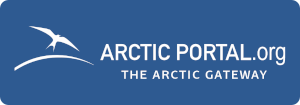Sámi University of Applied Sciences
The lead academic institution for the RIEVDAN project is the Sámi University of Applied Sciences (SUAS). Based in Kautokeino, Norway, it is a singularly important academic institution in the Sami area across 4 nations and it provides instruction both in and through Sámi language. From their website, SUAS is:
- A leading higher education and research institution in the Sámi area and the indigenous world.
- Cooperates with the Sámi community, particularly with young people, to preserve and promote the Sámi language, traditions, occupations, skills and knowledge.
- Supports Sámi society’s progress towards equality with the majority society.
People: Dr. Ellen Inga Turi (project leader), Dr. Inger Marie Gaup Eira (WP 1 leader), Professor Mikkel Nils Sara, Professor Nils Johan Paivio (WP 2), Assoc. Professor Johan Strømgen (WP 2), Prof. Svein Mathiesen (WP 2 leader), Helena Omma (Phd student, WP 1)
University of Tromso, UiT The Arctic University of Norway
UiT The Arctic University of Norway is the third largest in Norway and the northernmost university of the world. Its location on the edge of the Arctic implies a mission. The Arctic is of increasing global importance. Climate change, the exploitation of Arctic resources and environmental threats are topics of great public concern, and which the University of Tromsø takes special interest in. 15500 students and 3300 staff study and work at UiT The Arctic University of Norway. Teaching is research-based. UiT´s eight faculties offer, in spite of a dedication to Northern issues, a broad range of study programmes. The academic community in Tromsø is highly international. More than 20% of the academic staff and 10% of the student body are from abroad. The University offers more than 20 English taught master´s degree programmes, and all faculties offer English taught courses at both bachelor’s and master’s level.
UiT The Arctic University of Norway is a founding member of the University of the Arctic, an international network of 160 study and research institutions of the circumpolar region. But the University cooperates with all parts of the world. 200 international agreements secure an active academic exchange of students and staff with partner institutions worldwide. The University of Tromsø has been through three mergers. On the 1st of January 2009 UiT merged with the University College of Tromsø, and on the 1st of August 2013 with the University College of Finnmark. The latest merge was on the 1st of January 2016 with both the University College of Harstad and the University College of Narvik.
People: Rávdná Biret Márjá Eira, Kia Krarup Hansen (WP 3), Susanne Vars Buljo (WP 2)
Herzen University, St Petersburg, Russia
The Herzen State Pedagogical University of Russia (formerly Leningrad State Pedagogical Institute) is one of the largest universities in Russia. Located in Saint Petersburg, it operates 20 faculties and more than 100 departments. Located within the University is the Institute of the Indigenous Peoples of the North, of which Professor Gashilova is the Director. The Institute is renowned across Russia and is comprised of four Departments, Department of Uralic Languages Folklore and Culture, Department of Altaic Languages, Folklore and Culture; Department of Paleosiberian Languages, Folklore and Culture and the Department of Ethno — Cultural Studies. The Institute offers Bachelor and Masters degree programmes.
People: Prof. Ludmila B. Gashilova
Association of World Reindeer Herders (WRH)
People: Mikhail Pogodaev, Johan Mathis Turi
UArctic EALAT Institute
Read about the UArctic EALAT Institute
People: Svein D. Mathiesen
International Centre for Reindeer Husbandry
People: Anders Oskal
Global Environment Technology Foundation
The Global Environment & Technology Foundation (GETF), established in 1988, is a 501(c)(3) nonprofit organization based near Washington, DC with a mission to promote sustainable development through partnerships and targeted action. GETF seeks to shape a brighter future for communities and the environment by developing innovative strategic plans, creating high-impact partnerships, introducing new technologies and managing programs that have a lasting and positive impact on the world.
GETF focuses upon three core issues as the basis of its efforts:
- Water & Sanitation
- Clean Energy & Climate Change
- Sustainability
GETF has successfully served a wide range of clients including the White House, federal and state agencies, leading foundations, Fortune 500 corporations, non-governmental organizations, and multilateral development agencies. With a result-driven team and a deep breadth of experiences gained over the past 20 years, GETF is uniquely positioned among nonprofit organizations to design and implement high-value, lasting programs and partnerships. GETF’s work is driven by a simple principle: Sustainability challenges are solvable if we work together.
People: Prof. Bob Corell.
University of Miami
People: Professor emeritus, Nancy Maynard.


